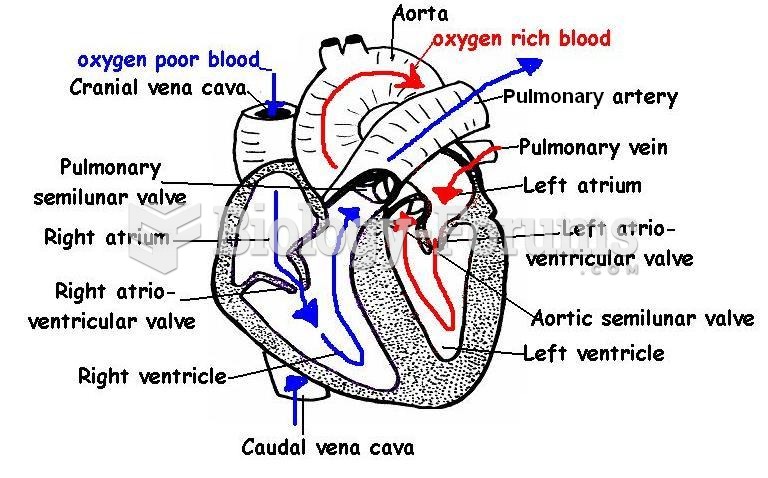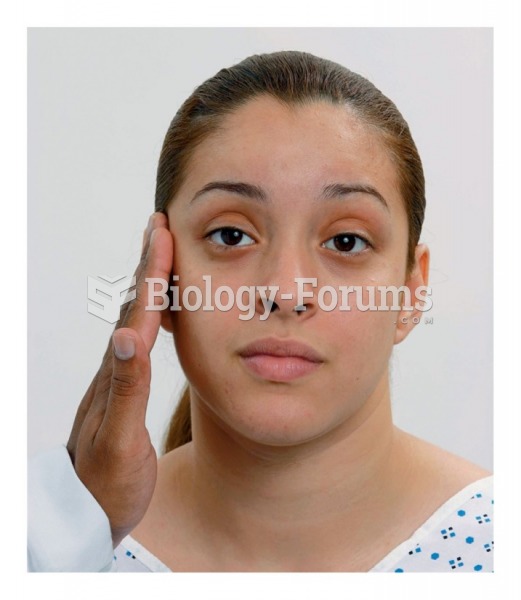|
|
|
More than 150,000 Americans killed by cardiovascular disease are younger than the age of 65 years.
Parkinson's disease is both chronic and progressive. This means that it persists over a long period of time and that its symptoms grow worse over time.
Most women experience menopause in their 50s. However, in 1994, an Italian woman gave birth to a baby boy when she was 61 years old.
For pediatric patients, intravenous fluids are the most commonly cited products involved in medication errors that are reported to the USP.
Prostaglandins were first isolated from human semen in Sweden in the 1930s. They were so named because the researcher thought that they came from the prostate gland. In fact, prostaglandins exist and are synthesized in almost every cell of the body.







